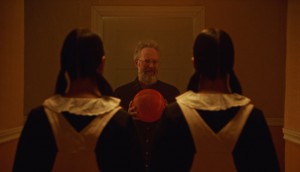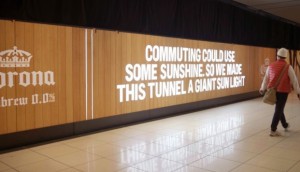Racism that hits close to home
Criola erects ads calling out bigots where they live.

This summer, Brazilian news program The National Journal posted a photo of weathercaster Maria Julia Coutinho to its Facebook page. Coutinho also happens to be black, and because this is the internet, comments on the photo quickly filled up with racist remarks directed at her. Even when posting from an account that has your real name attached to it, some trolls might not realize others can see the hate they spew. And even if someone does reply and call you out, it’s hard to get worried about someone that’s just pixels on a screen. But what if that changed?
Criola, a non-profit that looks to provide support to black women in Brazil, compiled the racist tweets and Facebook comments and turned them into billboards that have gone up around the country. But it didn’t stop there: using geo-location data, the ads were erected near the homes of the people who made the racist posts in the first place under the tagline “Virtual racism, real consequences. Criola. In defense of black women.”
The profile images and user names are blurred out, so the people weren’t entirely publicly shamed (which may be unfortunate, depending on your feelings about privacy and racism), but the idea is that the campaign might make those who posted them rethink what they’ve done and get everyone else to see that sharing hate online can also resonate in the real world.



Credits
Brand: Criola




















Leave a Reply